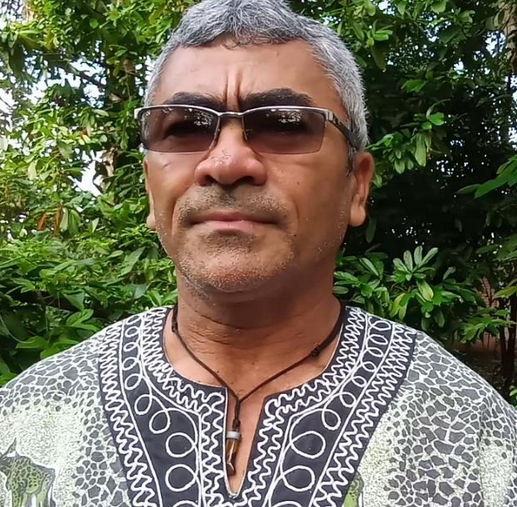Defending the territory, religiosity, and the “Festa dos Pretos”

Quilombola descendants in Tocantins found in Tô no Mapa a tool to help the community reach their goals
Manoel Filho is 49 years old, a teacher, a griot (elder/storyteller) apprentice, and president of the Dona Juscelina Quilombo community (Comunidade Remanescente de Quilombo Dona Juscelina). In 2021, he was responsible for registering three communities on the Tô no Mapa app: besides his own, he registered the Quilombola communities of Dona Domicília and Dona Eva.
Equipped with a great memory and in charge of the process seeking to settle ownership of their territory, “Seu” Manoel tells us his community’s application didn’t even make it past the first phase of this official land registration procedure. “We have been fighting for our territory for more than ten years”, he says, mentioning that his community was granted a self-determination certificate issued by the Fundação Cultural Palmares in 2009, although the process has been held by the National Institute of Colonisation and Agrarian Reform (Instituto Nacional de Colonização e Reforma Agrária – INCRA) since 2010, pending a technical report that sets and identifies the boundaries of quilombola communities (Relatório Técnico de Identificação e Delimitação – RTID).
Importance
Through the contact established by the Instituto Cerrados’ team, a partner organisation that has been conducting municipality-level registration workshops, Manoel downloaded the app with the understanding that this tool could be used as an instrument of resistance, as he puts it. “It is a tool to empower the community to help it reach its purposes. This is our ancestral territory, even though we don’t [administratively] own it yet. Anything that strengthens the community is a welcome addition”, he states.
The mapping of the territory drawn by using the Tô no Mapa app will be useful to complement the land-ownership registration process awaiting INCRA’s decision.
How was the registration
To indeed complete the registration, Manoel tells us he gathered the Council of Elders (griots) and shared what lay ahead with the community, in a series of online meetings, and, afterwards, in an in-person meeting observing healthcare protocols regarding the Covid-19 pandemic. For the leaders, the registration was simple.
With Tô no Mapa, members of the community attached proof of the community’s existence, comprised today of 314 families amounting to almost 1000 people. The matriarch whose name the community carries, Dona Juscelina, passed away recently, in 2021, at the age of 91. “Seu” Manoel shares fondly the strength and prayers of the elderly lady, and how much the community misses her.
Get to know Dona Juscelina’s story:
In defence of traditional cultures
The land-ownership process of “Seu” Manoel’s community highlights the value of this territory based on its unique religious practices, its ethnic and racial diversity, and its culture.
The region where the Dona Juscelina Community is located is home to many neighbouring quilombos, who come together to celebrate emblematic and iconic commemorative dates for traditional peoples. Black Awareness Day (Dia da Consciência Negra), celebrated on 20 November, is one such event, with a very intense cultural backdrop.
However, it is on 13 May, the day on which the Lei Áurea (the law abolishing slavery in Brazil) was signed, that the biggest celebration of the quilombola communities neighbouring Dona Juscelina takes place. Celebrated traditionally since 1968, although with some hiatuses, the event includes four days of celebrations with cultural displays, performances, and feasts. Manoel tells us that, in non-pandemic times, the “Festa dos Pretos” gathers up to 5000 people. In 2022, it will be the first time the community will host the event without the presence of Dona Juscelina, their matriarch.
